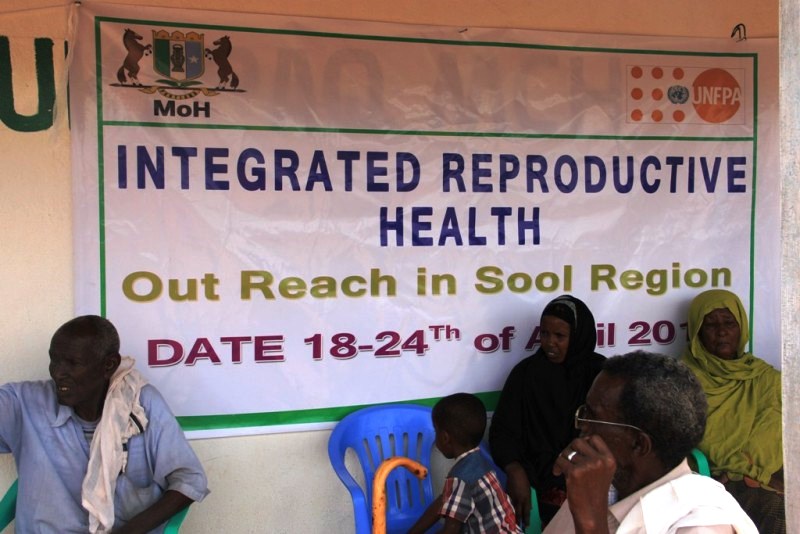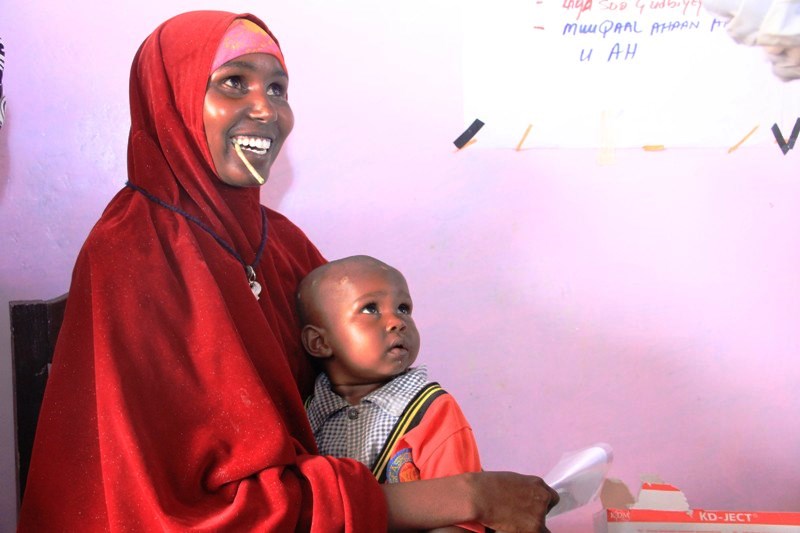Puntland- Somalia: Like many other mothers, thirty four year old Asha has recently delivered her baby boy at Garowe General Hospital. However, Asha's story is not like any other common story; she gave birth after being rushed to hospital as an emergency case.
Asha is one of the women residing in the hard-to-reach areas outside Garowe; the Capital of Puntland.
On April 19, 2015 a team of obstetricians, midwives, and nurses arrived at Tukaraq; some 80 kilometres northwest of Garowe. The team was sent by the Ministry of Health, to carry out Integrated Community Reproductive Health Outreach Campaigns in the remote villages of Sool region. They arrived in Asha's home village while she was experiencing early signs of labor and immediately identified her case as needing immediate attention.

The campaigns are among many other UNFPA-supported interventions in Somalia aimed at offering a wide range of reproductive health services targeting rural communities. The services include antenatal and postnatal care, referral of obstetric fistula cases and other complications, HIV and STI screening and treatment, demand creation for reproductive health services including modern birth spacing and addressing female genital mutilations and other cases related to gender-based violence.
Asha, who underwent two caesarian section operations in the past four years, was identified by the team carrying out the outreach campaign as an emergency case, therefore was immediately rushed to Garowe Hospital to receive urgent Comprehensive Emergency Obstetric and Neonatal care (CEmONC) services.
"The doctors reached us just at the right time, we were very lucky, thanks to God," said Asha's husband, Ahmed.
Asha had her first baby delivered through a caesarian section four years ago and a year and half later she experienced bleeding in the last term of her pregnancy and was rushed to Garowe hospital where doctors told her she was pregnant with twin babies and carried out emergency surgery on her to circumvent possible dangerous rupture of her womb.
Asha recovered well after operation, but did not take up modern contraception, resulting in another pregnancy.
" I thought that by breastfeeding the babies, I could avoid getting pregnant," said Asha, adding: "this time I am being administered with a birth spacing method that the doctor said will prevent pregnancy for a long time. My husband has agreed to this.

"Somalia is among the countries with one of the highest maternal mortality ratios in the world; contraceptives prevalence rate is below 5 percent and according to the recently launched Population Estimation Survey report, more than half of the population lives in rural and internally displaced persons' settlements where there is little, if any, existence of effective health care system.
Integrated Community Reproductive Health Outreach Campaigns, which were first launched in December 2014 as a pilot project in targeted rural villages, have already shown very promising results. For instance, just in a recent one week intervention in Sool region, about 9 cases of women with pregnancy complications were referred to Garowe Hospital to receive free CEmONC services also supported by UNFPA. A case of HIV infection was also detected and referred for counseling and treatment and more than 150 couples took up modern birth spacing methods.
"The number of women from those villages coming to seek care at Garowe Hospital has significantly increased since December" said Abdirahman, Sool Regional Health Officer at the Ministry of Health.
by Abdisalam Bahwal

